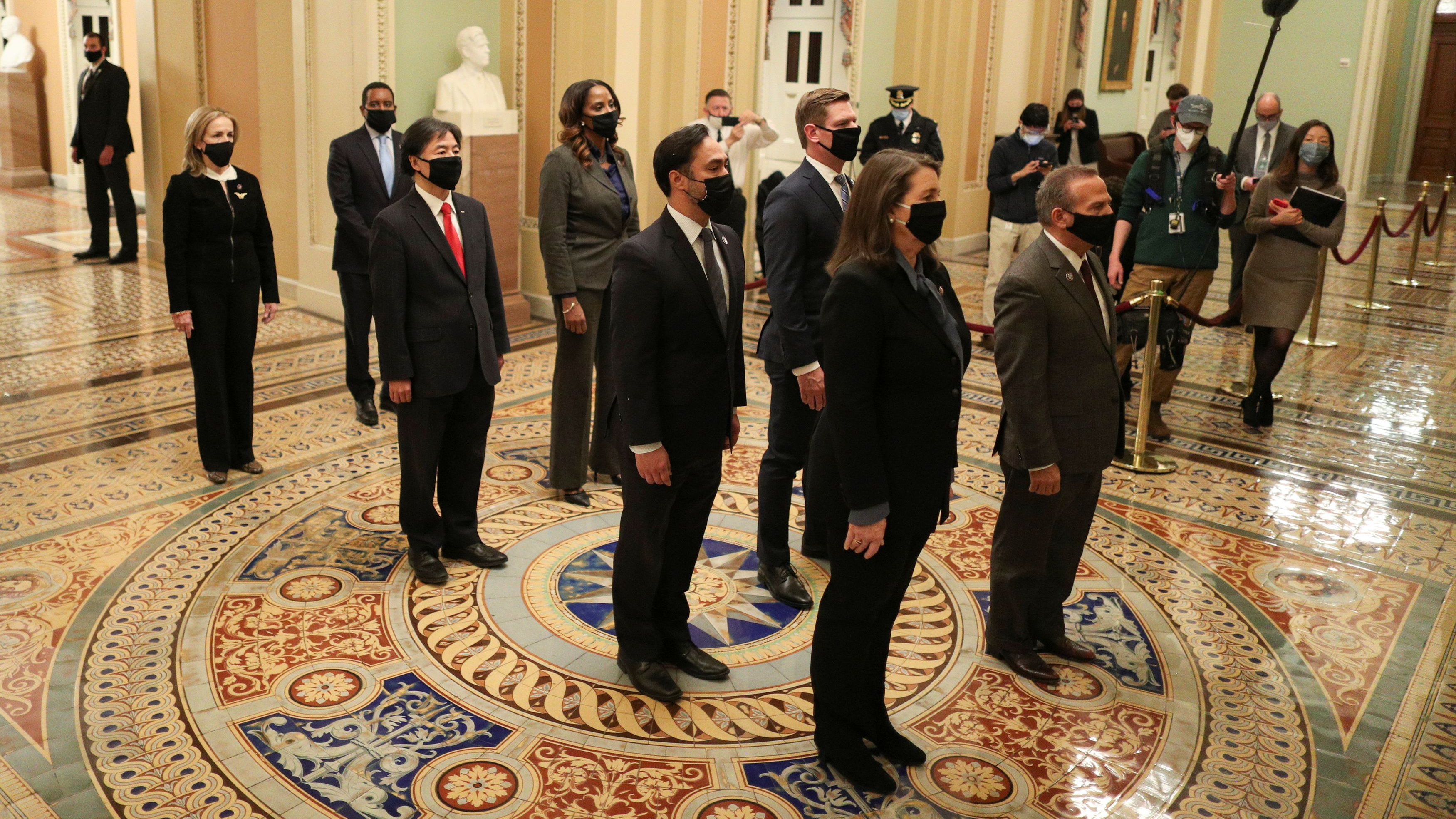
Editor's note: Thomas O. Falk is a London-based political analyst and commentator. He holds a Master of Arts in International Relations from the University of Birmingham and specializes in U.S. affairs. The article reflects the author's opinions and not necessarily the views of CGTN.
Three months after Joe Biden won the presidency and promised to heal the nation, Donald Trump's second impeachment trial began on February 9. The Democrat's impeachment managers will focus on both testimonies and, above all, an array of video footage displaying the scenes that shook America to its core on January 6.
However, the trial will unquestionably open wounds and re-incite emotions the people inside Congress felt, including the fear for their lives. All the while Trump is now almost 1,000 miles removed from the crime scene, out of office, without the possibility to send innumerable tweets on a daily basis and the odds heavily stacked against the prosecution.
After all, the vast majority of Republicans will not suddenly change their opinion, no matter how overwhelming the evidence. And while Mitt Romney, Susan Collins, Liz Cheney and Adam Kinzinger have repeatedly voiced their conclusion that Trump needed to be held accountable, the most recent result of Senator Rand Paul's motion to end impeachment proceedings (killed on a 55-45 vote) suggest that currently five Republican senators are inclined to convict. Given the required 17, a guilty verdict appears somewhat inconceivable.
Which warrants the question: Does the trial help America in its current position?
Would it possibly make more sense to swiftly close the Trump chapter and focus entirely on the tasks ahead? Particularly if the pandemic demands all strength and attention and with Congress starting to deal intensively with Biden's ambitious COVID-19 relief package from this week onward?
Bipartisan cooperation would come in handy for millions of Americans in need who could finally receive much-needed support. And how can Biden deliver on his pledge of unity and reconciliation if one side sits trial? These are precisely the talking point several Republicans made on Sunday's political TV shows across the networks.
And perhaps there would even be some merit to these arguments if the magnitude of the crime wasn't this unique and if Trump's arrival at Mar-a-Lago meant the GOP's goodbye to Trumpism and its hello to traditional Republican values. But one knows this isn't the case.

House impeachment managers stand at the U.S. Capitol to hand-carry an article of impeachment against former President Donald Trump to the Senate for trial on accusations of inciting the January 6 attack on the Capitol, Washington, U.S., January 25, 2021. /Reuters
House impeachment managers stand at the U.S. Capitol to hand-carry an article of impeachment against former President Donald Trump to the Senate for trial on accusations of inciting the January 6 attack on the Capitol, Washington, U.S., January 25, 2021. /Reuters
For unity, as Mitt Romney rightly stated, it is "important to recognize the need for accountability, for truth and justice". Sweeping the events that transpired under a rug and giving the former president a pass is a message the United States simply cannot afford. The trial must therefore send the signal that actions have consequences.
It offers legislators an opportunity to go on the record and unequivocally state that Trump's conduct cannot stand. That even a president cannot govern with impunity and that Congress will not provide future presidents with carte blanche to damage the system for self-interest.
At the same time, the trial works as a referendum on the Republican Party, which – to a great extent – enabled the former president's actions and is thus complicit. Given that Trumpism outlived the Trump presidency, it is essential to tell the full story of Trump's plan to overturn the elections to ensure that the American people understand his unprecedented attempt to shatter the Constitution.
Again, accountability is the key. Where exactly are the GOP Trump-loyalists inclined to draw a line if inciting violence at the price of five lives – including the one of policeman Brian Sicknick – was insufficient to initiate a change in direction? Those legislators, who acquit Trump, will have to answer not only to their constituency during the next primaries but to history. And particularly the latter will not judge them kindly.
(If you want to contribute and have specific expertise, please contact us at opinions@cgtn.com.)

